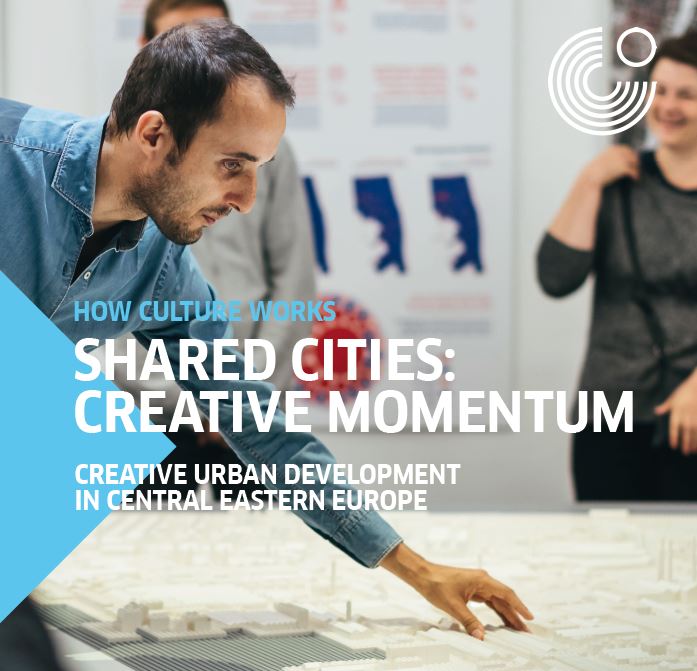
How Culture Works
"DOES EVERYTHING ALWAYS HAVE TO BE ASSESSED?" No. But when cultural work is financed with public funds, there is a necessity to evaluate.
Prague Permanent linkThe Virtual Ritual performance premiered on 2nd October 2019 in the Archa Theatre as part of the Shared Cities Finale. The performance takes place in a fictional city. In what ways does it resemble a real city? What problems do virtual cities have? And is it easier for people to share and be part of a community in the virtual world? Find the answers in the interview with Jan Mocek and Táňa Švehlová from SixHouses in Prague, Czech Republic.
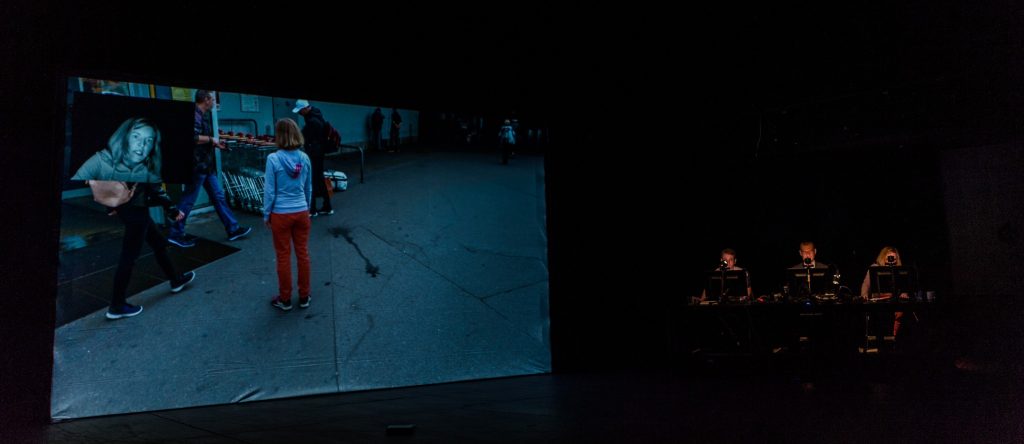
© Pavlína Jáchimová
+++++++++++++++++++++++++++++++++++++++++++++++++++++++++++++
By Martina Peachment Brehmer
Your new performance Virtual Reality takes place in a fictional city. In what ways does it resemble a real city?
Jan: That’s what we’re testing. Our goal is to map the phenomenon of virtual cities – where people meet – as the gaming industry develops and changes our way of entertainment. And compare it to real cities. When I was a kid, we spent our free time running outside. Today, the playground next to the apartment building in my hometown Semily in East Bohemia has new equipment, but there are no kids playing there – as if they had moved home to their video games. The fact that public spaces are empty suggests that people spend more time at their computers or in front of their TVs. Our goal is to highlight this moment when virtual reality gradually replaces real life. Virtual worlds like video games are taking over the functions of a city. Digital communication platforms are also part of the story – as people today meet rather there than in real life. This change redefines what a city is, what sharing in a city is – sharing now doesn’t have to be physical, it can happen in the virtual gaming world or on Facebook. Maybe people are starting to use cities in a utilitarian way – for certain functions like getting from place A to B but not for sharing space with others. But maybe this is just true for small towns, Prague might be different.
Is the virtual city in your performance a shared city?
Tana: In terms of a space that is shared by people in one moment – yes, it’s one of the most shared spaces in the world. Daily, around 100.000 players join this virtual city.
Jan: MMO, massively multiplayer online games, is a huge phenomenon. These games are played by millions of players around the world who sit down at a computer at home and interact with each other in one shared space. In this space, they interact with each other – taking on different roles, playing phantasy or a game like Second Life. In an online game, you can take on an alternative identity. It also enables to break the rules of our normal lives, so you can relax.
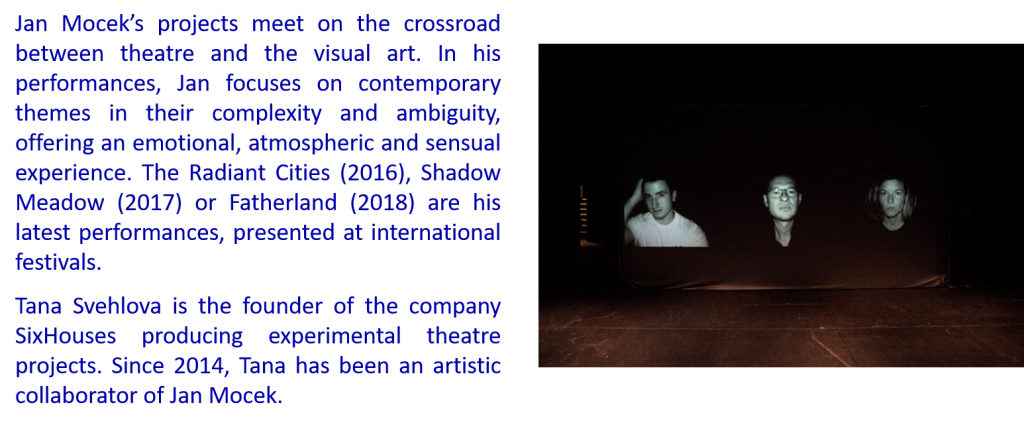
© SixHouses
Why did you choose the metaphor of an online game to depict shared cities?
Jan: Because I believe that today people share and meet – in the philosophical sense of the word – more in the virtual world. The online gaming world is a space where people can define their own rules and codes, what is and is not possible. Even a city experience can be lived through and shared in the virtual world.
Who are the characters in the Virtual Ritual?
Jan: Osamu Okamura, curator of the Shared Cities Finale, plays himself – an urbanist. Osamu describes the ways in which virtual cities and spaces are constructed from an architectural point of view. Then there’s YouTuber Atlet who makes his living from being a player of these online city games. Every day he makes videos of himself playing games. As many of his peers, he spends about 10 hours a day in the virtual world. Then we have Adela Vosickova, a gamer and photographer, who plays the game in an unusual way. She focuses on how the social space in the game is shared between the players.
Is it easier for people to share and be part of a community in the virtual world?
Jan: There was a game that was basically a copy of London and it wasn’t successful at all. The reason for this was that transport in cities like London is way too complicated – it’s no fun to drive through London in a game as you can’t break the traffic rules, really. Maybe we should see virtual cities which are more open and fun to drive through than real-life cities as inspiration.
Tana: With the performance, by showing a city that functions in a completely different way, we want to change how people view their cities. After seeing our gaming performance, we want to inspire people to change their perspective of a real city and look at how it functions – the houses or the cars – in a new way.
What changes would you introduce to real-life cities based on what you like in their virtual counterparts?
Jan: I would completely redo the transport system (laugh).
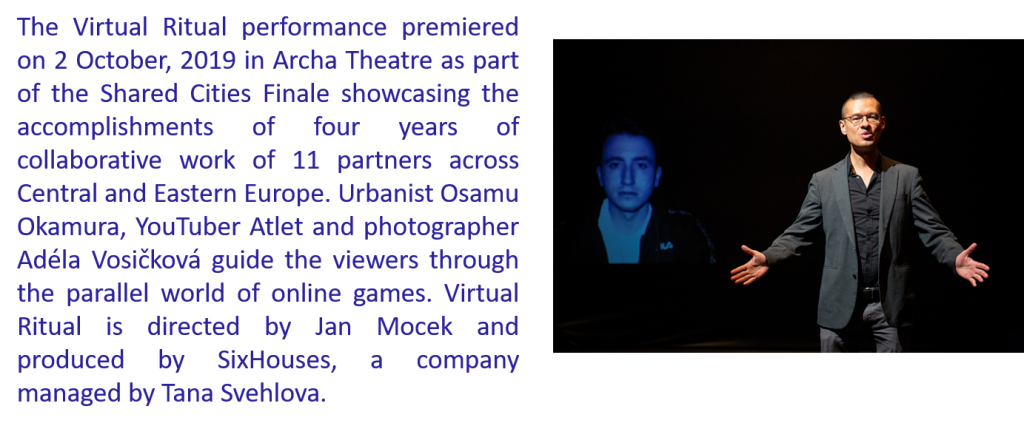
© SixHouses
What problems do virtual cities have? How do they deal with them?
Jan: The goal of online games and their cities is to be fun – to get as much people as possible to play the game. In our performance, we use virtual cities as a metaphor – we take their example and apply it to our real life as if it was a game. Which of the principles online games use are also applied in real life? We look at how space is constructed to create an identity and the roles we play. In an online game, you create your urban identity. The game also connects a specific demography to a specific space – when you’re surrounded by corporate buildings, you meet suited up 9 to 5ers mostly. It’s like in real life when you go to the business quarters in Prague like Karlin or Pankrac where people behave in a certain coded way – their identity is constructed. This is what our method is about – through an online game we make people look at their city in a new way, as if it’s a game too and they are players and their relationships and behaviour is also programmed. They are a bit like avatars. The paths, on which people move around a city, or how they are dressed, are pre-programmed and based on what type of people they are.
So, our real life in cities is pre-programmed?
Jan: Absolutely, the way a city is constructed, how certain people are ascribed to certain environments, how the urban identity of people and of cities is formed. Then, urban dwellers perform their identity, expressing which city class they belong to.
Tana: You can choose your identity and you can also change it. This is a message of freedom – if you don’t like your identity, you can change it. You are in charge of your own identity as well as of the whole city organism, like in a game. This is reflected in participatory processes – why people should engage. A city is an organism that can be shaped and your identity is one of the tools you can use for this. The way a city functions is not a given, it is a social agreement that we all respect but people can participate in transforming it via changing their ways and identities. If we decide to change a city, tomorrow our lives could look different.
Jan: It only looks like that the way a city functions is a given – for example that we travel by car. I believe that we can make new agreements and change the way we live our city lives. Either you’re an active player or you’re just an avatar. In online games, the avatars create a human ambient – artificial programmed intelligence that is on a loop of behaviour and looks like an illusion of humans. Then, there are players, who also look like avatars, but who have a sign with a nickname above them and who have a real-life person actively playing the game for them. Like in real life – we have a few players who shape the game and the rest are is mass.
Interview took place at 09/19
////////////////////////////////////////////////////////////////////////////////////
See also:

"DOES EVERYTHING ALWAYS HAVE TO BE ASSESSED?" No. But when cultural work is financed with public funds, there is a necessity to evaluate.
Prague Permanent link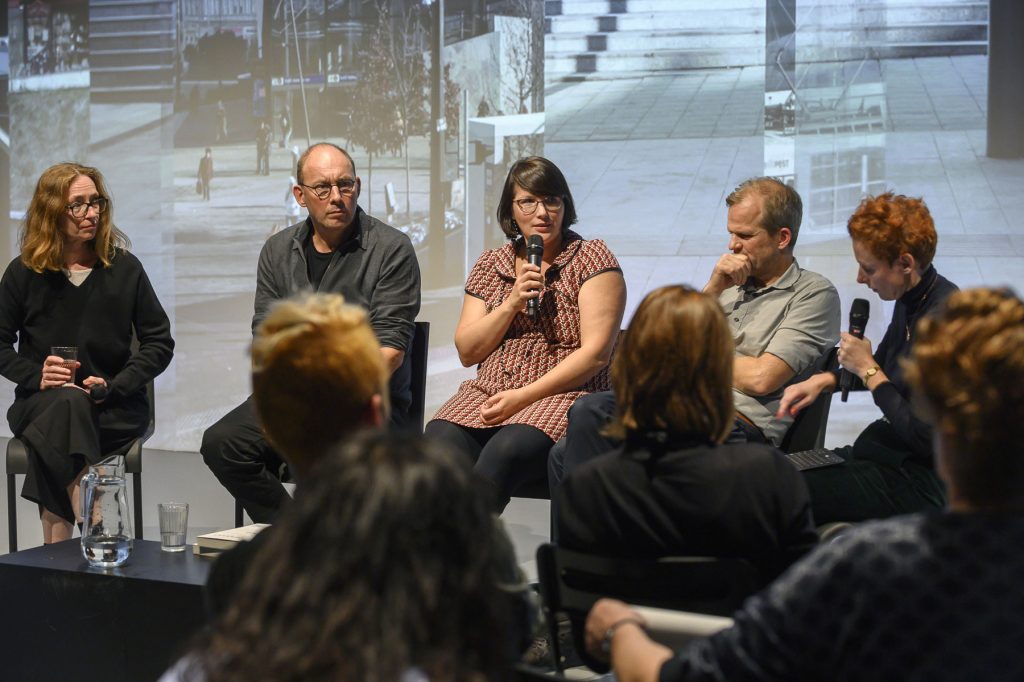
The one-day programme was based on discussion formats with renowned European architecture theorists, curators and urban researchers.
Prague Permanent link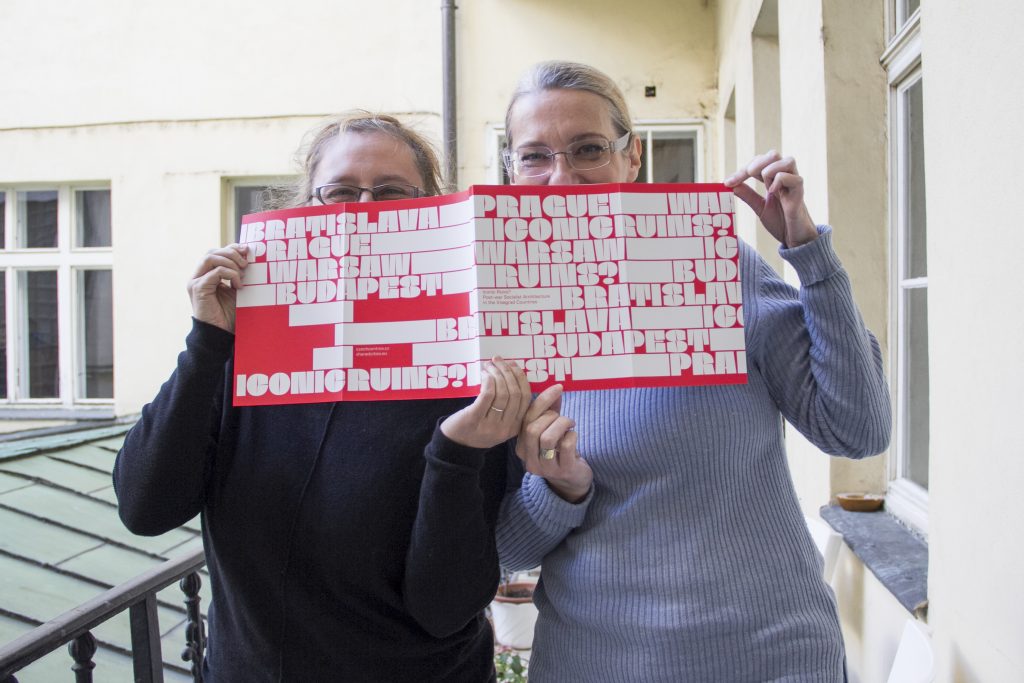
Within Shared Cities: Creative Momentum the Czech Centres realized the "Iconic Ruins?" exhibition and an economic impact evaluation of the project. How does the future of the exhibition look like? What are the benefits of having an economic analysis of the project? Find the answers in the interview with Ivana Černá and Sandra Karácsony from the Czech Centres / Česká Centra in Prague, Czech Republic.
Prague Permanent link